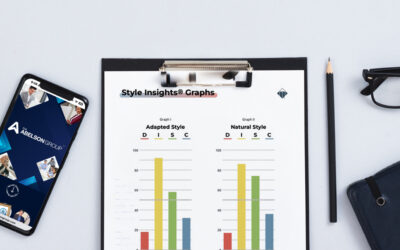The most important methods for bridging the gap between emotional intelligence and personality development are DISC assessments. Behavior and personality are measured with DISC tests that provide its basis for developing emotional intelligence, improving team interactions, and providing all-around training. Dominance, Influence, Steadiness, and Conscientiousness ( DISC), in short, is used in understanding how people behave differently in various situations. DISC assessments enhance emotional intelligence, giving complete personality training to the individual.
What is DISC Assessment?
The assessment helps an individual know how to behave and communicate with others. The assessment is categorized into four fundamental personalities.
Dominance (D): A person scoring high in D is self-confident and goal-oriented.
Influence (I): High I scorers are outgoing, enthusiastic, and social.
Steadiness (S): The high scorers for steadiness are stable, calm, patient, and considerate.
Conscientiousness (C): The high C people are systematic, detail-oriented, and systematic.
Improving Emotional Intelligence through DISC
The DISC test improves emotional intelligence as it enables the person to understand their behavior. DISC improves emotional intelligence in the following ways:
Self-Awareness: You can determine your natural behaviors and mental health by determining your DISC profile (Dominance, Influence, Steadiness, Conscientiousness).
Adaptability: DISC offers techniques to modify your behavior and speech in order to forge closer bonds.
Conflict Management: Recognizing personality differences reduces misunderstandings and enables effective conflict intention.
Using DISC leads to better relationships, improved teamwork, and greater personal and professional success.
Building Stronger Teams with DISC Assessments
This is how DISC assessments help build stronger teams with DISC assessments:
- Effective communication: The insights derived from the DISC assessment, show how different people prefer communicating. By understanding individual differences in the processing and expression of information, teams can improve communication styles to ensure better interactions.
- Balanced Team Roles: DISC assessments help in creating a balanced team by knowing the strengths and behaviors of each team member. Dominant types are great decision-makers and problem-solvers. Influential types bring enthusiasm and creativity. Steady types bring stability and empathy. Conscientious types bring accuracy and attention to detail. The combination of these traits leads to more well-rounded, high-performing teams.
- Conflict Resolution: The DISC profiles of the team members will help in constructively navigating conflicts. Dominant type who needs to make quick decisions, and a conscientious type that requires careful analysis, the team can work on the root cause of the problem and find solutions that accommodate both styles thus reducing misunderstandings and promoting collaboration.
- Better Collaboration: When people know and appreciate each other’s DISC types, they will work better in teams. They have knowledge of the strengths and weaknesses of each other, it helps them delegate tasks properly, ensure smooth workflow, and more successful team projects. DISC encourages mutual respect where everyone is valued for their unique contributions.
DISC Personality Training: Unlock the Potential
Through analysis of behavior and communication style, DISC personality training has proved to be very useful for the maximization of a person’s potential. Since it categorizes a person into Dominant (D), Influential (I), Steady (S), or Conscientious (C), the training becomes helpful in improving self-awareness and improves team dynamics as well as connections.
Through DISC training, individuals can:
- Identify Strengths: Understand their unique traits and how they contribute to success.
- Improve Communication: Have a relationship plan with personality types to have clearer and more effective interactions.
- Enhance Emotional Intelligence: This teaches how to manage your emotions and reactions at the workplace and in your personal life.
- Change to Challenges: Learn to modify behavior for the needs of a given situation or team.
Conclusion
An essential tool for enhancing DISC emotional intelligence, building stronger teams, and fostering personality development is the DISC assessment. Understanding the distinct characteristics of each DISC assessment for teams will increase individuals’ and organizations’ self-consciousness, communication, and teamwork. It is a means to reach your full potential whether you are an individual attempting to gain improvements in emotional intelligence, a team leader attempting to increase collaboration, or an organization attempting to encourage personal growth.




